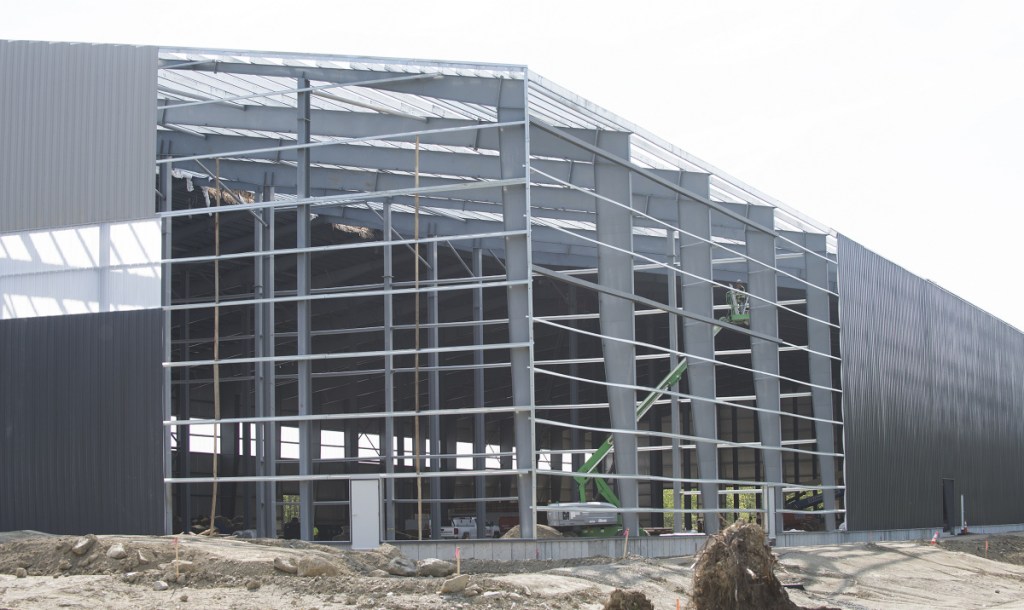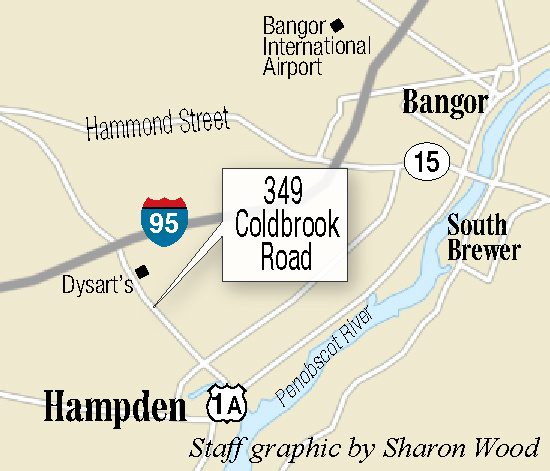ORONO — Not two months since towns associated with the Municipal Review Committee ended their contracts with the Penobscot Energy Recovery Company, the organization’s board is allowing them to supply the waste-to-energy plant again, even though some blame PERC for the delay in the construction of the Fiberight plant in Hampden that the MRC is partnered with.
At a special meeting at the Orono Town Office that lasted close to two hours, the MRC board voted to give its 115 partner towns a waiver of their contractual obligation to send their waste to MRC sanctioned landfills until the Fiberight facility is up and running and instead to send it to PERC.
The agreement did not come without debate.
“I just don’t think it’s fair to the majority of our communities that have joined to give a way out to an agreement that was signed,” Board President Chip Reeves of Bar Harbor said.
Board member Sophia Wilson of Orono disagreed. “I think we’re being responsive to a real concern of some of our members.”
MRC towns had ended their contracts with PERC on March 31 and were expecting to send their waste to the sprawling Fiberight plant in Hampden that was scheduled to be operational on April 1. The Maryland-based Fiberight’s 144,000-square-foot plant is designed to separate recyclables and organic waste, converting the organics into biofuels such as biomethane. However, its recycling operation may not open until September while its conversion process may not be ready until December.
The new plant is supposed to be able to process up to 180,000 tons of waste annually through recycling and anaerobic digestion, the process that turns organic material into biofuels.
The delay forced the MRC, which represents 115 communities in central and eastern Maine, to send the waste to two landfills, the state-owned Juniper Ridge Landfill in Old Town operated by a subsidiary of Casella Waste Systems and the Crossroads Landfill in Norridgewock operated by Waste Management. However, some towns that did not want to bury their waste were sending it to PERC in contravention to the contracts they had signed which required them to send their trash exclusively to the MRC and the landfills since the Fiberight facility was incomplete.
Board member Gary Bowman, the town manager in Oakland, said the board had put many years of work into getting to this point. He said he understands towns don’t want to send waste to a landfill, Oakland included, but said the members had “signed the dotted line” of the agreement with the MRC.
“I have problems with this agreement, but I can understand we’re not helping the environment by putting stuff in the ground,” he said. “… This group is a good group of men and women. It just feels as though we’re getting beat up.”
Reeves, the public works director for Bar Harbor, was against allowing towns to sidestep sending their waste to landfills while the Fiberight facility was being built. MRC members had worked very hard to get to this point to get to a lucrative alternative to PERC, he said and pointed out that if not for PERC, the facility would already be operational.
PERC blocked the MRC’s attempts to get Department of Environmental Protection approval for 274 days, according to Bowman. When Fiberight and the committee received their permits from the Maine DEP, PERC, along with its managing general partner USA Energy and Exeter Agri-Energy, appealed the state’s decision in Kennebec County Superior Court.
Others have cited the harsh winter and the wind storm of October 2017 as contributing to the delays.
Board member Tony Smith, the public works director in Mount Desert, agreed with Reeves, saying the way he does business is to sign a contract and “follow through with it.” He said the landfills were interim.
“I think we all should follow through with adhering to those agreements,” he said.
But others on the board of directors disagreed, saying member municipalities in the meantime should have an alternative to sending waste to landfills. Wilson, the town manager in Orono, said she didn’t see how it hurts MRC to allow towns this option, as the towns would be footing the extra charge on their own. Orono residents were willing to pay extra to not send municipal waste to a landfill while the Fiberight facility is not operational, she said.
The agreement allows MRC municipalities to send waste to PERC at $90 per ton, with a 30-day $10 discount.
Board member Kevin Howell, town manager in Carmel, said he agreed with honoring contracts, but added PERC was not an option when those contracts were signed, but was for now. If towns were “willing to take it on the chin financially,” he said it was a good alternative.
“We have to make compromises and bends,” he said. “This is a viable option that is no way putting MRC or towns in financial despair or weaker legal positon.”
Board member Catherine Conlow, the city manager in Bangor, agreed with Wilson and Howell, while also calling out a “disinformation campaign” over the MRC in regards to the overall plan and timeline of the facility, though she did not specify the origin of the disinformation.
“I do feel like the disinformation campaign needs to stop,” she said. “It’s ridiculous.”
Reeves said anyone trying to make the argument that in the end, the new technology of the Fiberight facility won’t work, is arguing a “moot point.” He said it was only behind schedule, but had been tested on many levels.
The Fiberight facility will be a first-of-its-kind facility not only in Maine, but in the country. Members have argued that this type of technology has been successful in Europe in over 300 instances.
Colin Ellis — 861-9253
cellis@centralmaine.com
Twitter: @colinoellis
Send questions/comments to the editors.










Comments are no longer available on this story